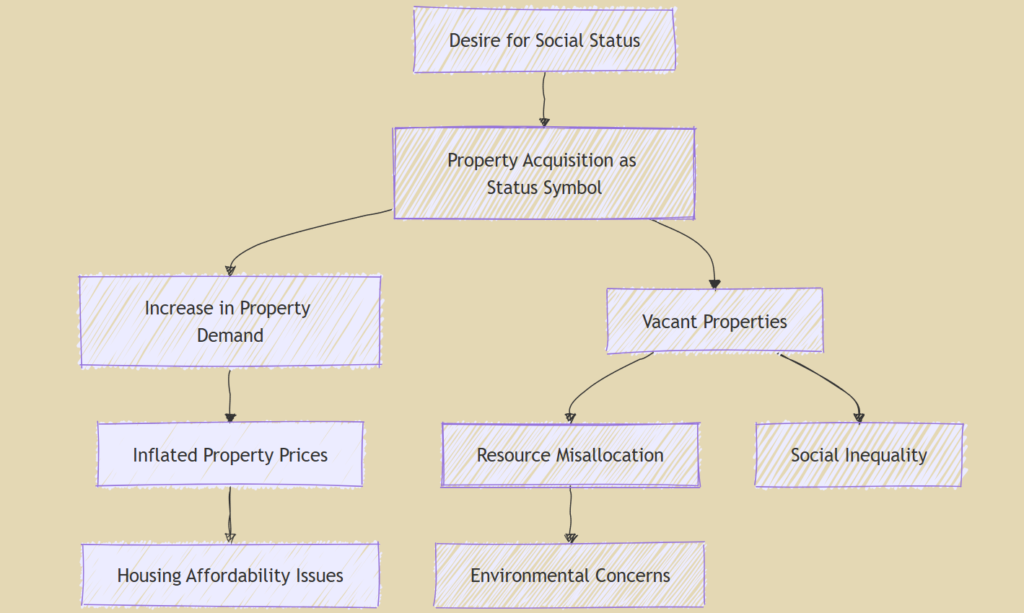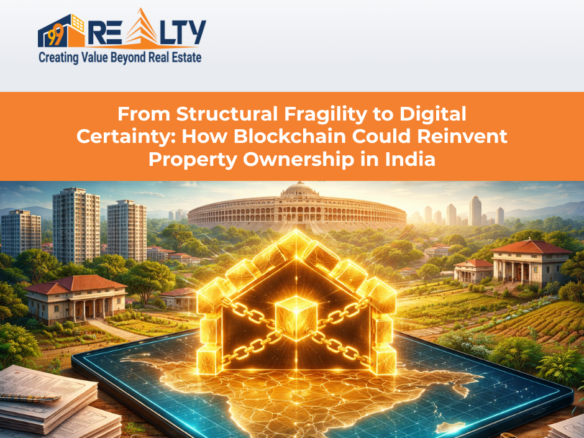In recent times, India’s urban landscape has witnessed a phenomenon where purchasing property transcends mere utility, evolving into a symbol of personal success and social status. This trend, aptly termed the ‘Coldplay Effect‘ of Indian real estate, draws a parallel between attending high-profile events and acquiring real estate assets as markers of one’s achievements.
Symbolism in Property Acquisition
Much like attending a Coldplay concert, where the experience is as much about the spectacle as it is about the music, purchasing property in India has become a means to project one’s arrival in life. This form of symbolic consumption is not solely about securing a place to live but also about showcasing financial success and social standing. The act of buying property serves as a tangible manifestation of one’s accomplishments, a sentiment echoed in various discussions and analyses.
The Prevalence of Vacant Properties
A significant consequence of this trend is the rise in vacant properties across urban India. Many individuals invest in multiple properties, not with the intention of residing in them or generating rental income, but to bolster their investment portfolios and social image. This behavior has led to a substantial number of homes remaining unoccupied, contributing to a paradoxical situation of housing surplus amidst shortages.
Also Read: The Surge in India’s Luxury Residential Market: An In-Depth Analysis
Economic and Social Implications
The ‘Coldplay Effect’ has far-reaching implications for the Indian economy and society:
- Inflated Property Prices: The symbolic value attached to property ownership drives demand, leading to increased real estate prices. This surge often places property acquisition beyond the reach of the average citizen, exacerbating housing affordability issues.
- Resource Misallocation: Resources are diverted towards constructing properties that may remain unoccupied, leading to inefficiencies in the housing market and potential environmental concerns due to unnecessary construction.
- Social Stratification: Property ownership as a status symbol can deepen societal divides, reinforcing class distinctions and contributing to social inequality.

Addressing the Challenges
To mitigate the adverse effects of the ‘Coldplay Effect,’ a multifaceted approach is necessary:
- Policy Reforms: Implementing policies that discourage speculative property purchases and encourage the utilization of vacant properties can help balance the housing market.
- Public Awareness: Educating the populace about the economic and social impacts of symbolic property ownership can foster more sustainable consumption patterns.
- Incentivizing Rental Markets: Developing a robust rental market with incentives for property owners to lease vacant homes can alleviate housing shortages and make urban living more affordable.
Conclusion
The ‘Coldplay Effect’ in Indian real estate underscores a complex interplay between cultural values, economic behavior, and social dynamics. While property ownership remains a cherished goal for many, it is imperative to approach it with a balanced perspective, recognizing the broader implications of our consumption choices on society and the economy.
This article is a reproduced article, from original article The ‘Coldplay effect’ of Indian real estate by Mr. Vivek Kaul accessed on 7th Feb 2025.
Subscribe to get updates on our latest posts and market trends.






Join The Discussion